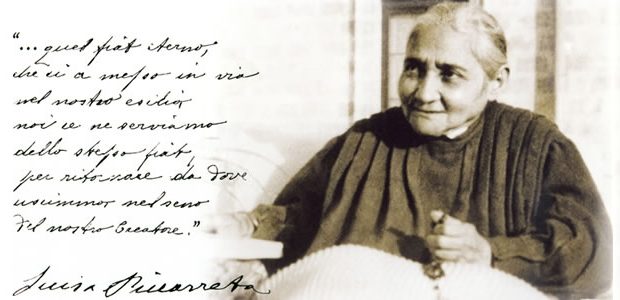Second reading
From a treatise on the Lord’s Prayer by Saint Cyprian, bishop and martyr
Your kingdom come. Your will be done
The prayer  continues: Your Kingdom come. We pray that God’s kingdom will become present for us in the same way that we ask for his name to be hallowed among us. For when does God not reign, when could there be in him a beginning of what always was and what will never cease to be? What we pray for is that the kingdom promised to us by God will come, the kingdom won by Christ’s blood and passion. Then we who formerly were slaves in this world will reign from now on under the dominion of Christ, in accordance with his promise: Come, O blessed of my Father, receive the Kingdom which was prepared for you from the foundation of the world.
continues: Your Kingdom come. We pray that God’s kingdom will become present for us in the same way that we ask for his name to be hallowed among us. For when does God not reign, when could there be in him a beginning of what always was and what will never cease to be? What we pray for is that the kingdom promised to us by God will come, the kingdom won by Christ’s blood and passion. Then we who formerly were slaves in this world will reign from now on under the dominion of Christ, in accordance with his promise: Come, O blessed of my Father, receive the Kingdom which was prepared for you from the foundation of the world.
However, my dear friends, it could also be that the kingdom of God whose coming we daily wish for is Christ himself, since it is his coming that we long for. He is our resurrection, since we rise again in him; so too he can be thought of as the kingdom of God because we are to reign in him. And it is good that we pray for God’s kingdom; for though it is a heavenly Kingdom, it is also an earthly one. But those who have already renounced the world are made greater by holding positions of authority in that kingdom.
After this we add: Your will be done on earth as it is in heaven; we pray not that God should do his will, but that we may carry out his will. How could anyone prevent the Lord from doing what he wills? But in our prayer we ask that God’s will be done in us, because the devil throws up obstacles to prevent our mind and our conduct from obeying God in all things. So if his will is to be done in us we have need of his will, that is, his help and protection. No one can be strong by his own strength or secure save by God’s mercy and forgiveness. Even the Lord, to show the weakness of the human nature which he bore, said: Father, if it be possible, let this cup pass from me, and then, by way of giving example to his disciples that they should do God’s will and not their own, he added: Nevertheless, not as I will, but as you will.
All Christ did, all he taught, was the will of God. Humility in our daily lives, an unwavering faith, a moral sense of modesty in conversation, justice in acts, mercy in deed, discipline, refusal to harm others, a readiness to suffer harm, peaceableness with our brothers, a wholehearted love of the Lord, loving in him what is of the Father, fearing him because he is God, preferring nothing to him who preferred nothing to us, clinging tenaciously to his love, standing by his cross with loyalty and courage whenever there is any conflict involving his honor and his name, manifesting in our speech the constancy of our profession and under torture confidence for the fight, and in dying the endurance for which we will be crowned—this is what it means to wish to be a coheir with Christ, to keep God’s command; this is what it means to do the will of the Father.
